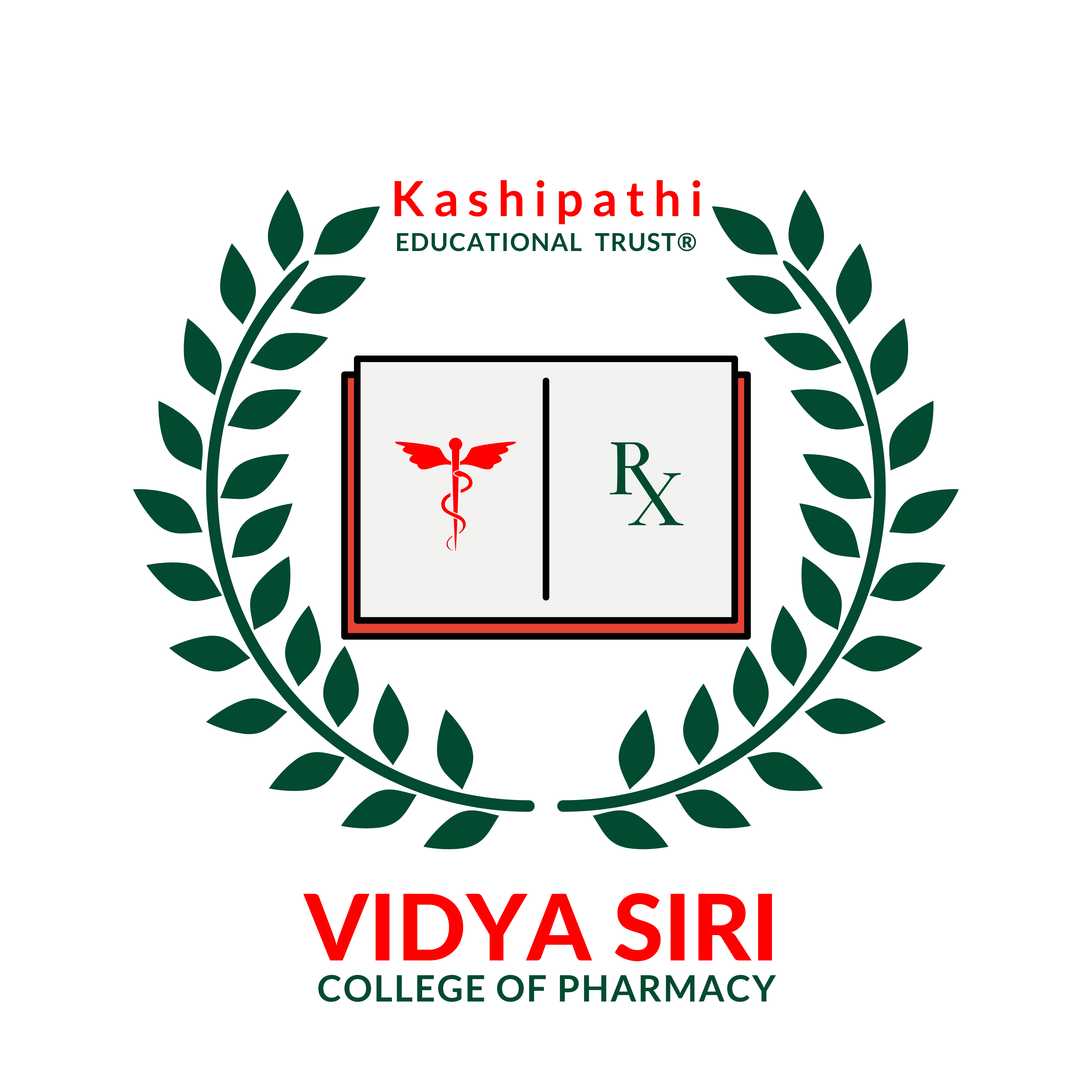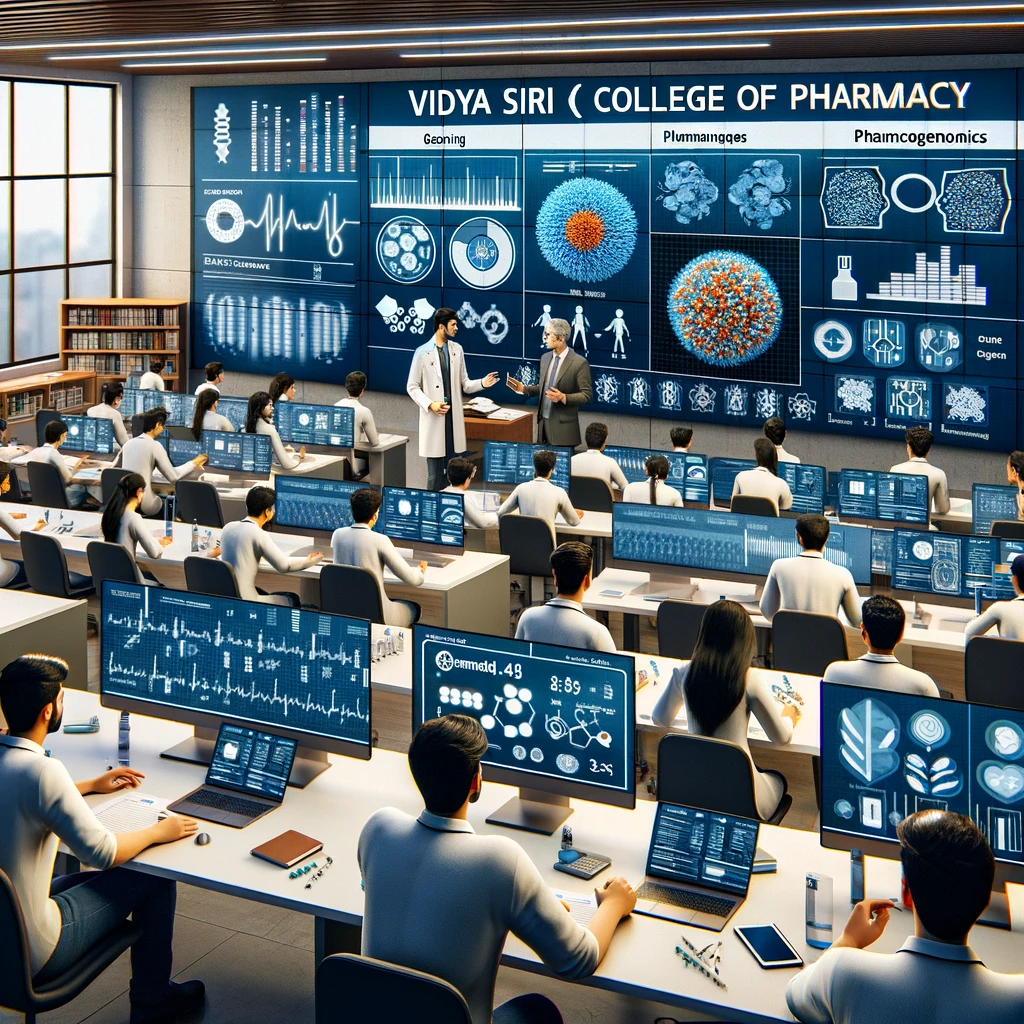Introduction
The realm of healthcare is witnessing a paradigm shift towards personalized medicine, a movement poised to redefine the landscape of treatment modalities, patient care, and, importantly, pharmacy education. Vidya Siri College of Pharmacy, at the forefront of this educational evolution, embraces the challenge and opportunity presented by personalized medicine. This transformative approach promises a future where treatments are tailored to the individual characteristics of each patient, considering their genetic makeup, environment, and lifestyle. As personalized medicine burgeons, pharmacy education must adapt, equipping students with the knowledge and skills necessary to thrive in this new era. This article delves into the implications of personalized medicine for pharmacy education at Vidya Siri College of Pharmacy, outlining the necessary shifts in curriculum, teaching methodologies, and practical training.
The Genesis of Personalized Medicine
- A Brief Overview
Personalized medicine, also known as precision medicine, marks a departure from the traditional one-size-fits-all approach to patient care. It leverages advancements in genetic testing, bioinformatics, and molecular biology to customize healthcare. With its roots in the mapping of the human genome, personalized medicine has grown in leaps and bounds, offering hope for more effective treatments, reduced side effects, and enhanced patient outcomes.
- Impact on Healthcare
The impact of personalized medicine on healthcare is profound. It not only improves the accuracy of diagnoses and the efficacy of treatments but also holds the potential to revolutionize preventive medicine. By understanding an individual’s predisposition to certain diseases, healthcare professionals can devise personalized prevention plans, mitigating or even averting the onset of these conditions.
Transforming Pharmacy Education for Personalized Medicine
- Curriculum Evolution
The advent of personalized medicine necessitates a curriculum that transcends traditional pharmacological studies. At Vidya Siri College of Pharmacy, the curriculum is evolving to include genetics, pharmacogenomics, molecular biology, and bioinformatics. These subjects are crucial for future pharmacists to understand the genetic factors that influence patient responses to medications.
- Emphasis on Interdisciplinary Learning
The interdisciplinary nature of personalized medicine requires pharmacists to collaborate with professionals from various fields, including genetics, bioinformatics, and data science. Pharmacy education now emphasizes collaborative learning experiences, fostering an environment where students can appreciate and engage in the interdisciplinary aspects of healthcare.
- Developing Clinical Decision-Making Skills
Personalized medicine adds a layer of complexity to clinical decision-making. Pharmacy students are taught to analyze genetic information, understand patient-specific factors, and make informed decisions regarding drug selection, dosing, and monitoring. This skill set is critical in a landscape where pharmacological interventions are increasingly tailored to the individual.
- Incorporating Technology and Big Data
The integration of technology and big data analytics is pivotal in personalized medicine. Pharmacy education at Vidya Siri College now includes training in the use of electronic health records, pharmacogenomic databases, and bioinformatics tools. Students learn to navigate these digital resources, crucial for the personalized assessment and treatment of patients.
Challenges and Opportunities
- Bridging the Knowledge Gap
One of the primary challenges in integrating personalized medicine into pharmacy education is bridging the existing knowledge gap. Faculty members must be adequately trained in the principles of personalized medicine to effectively impart this knowledge to students. Vidya Siri College is committed to faculty development programs that ensure educators are well-versed in the latest advancements in the field.
- Ethical Considerations
Personalized medicine raises important ethical considerations, particularly regarding genetic privacy and discrimination. Pharmacy education now includes a strong emphasis on ethics, preparing students to navigate the moral complexities associated with genetic information and personalized healthcare.
- Future Prospects
The shift towards personalized medicine opens up new career pathways for pharmacists. Beyond traditional roles, pharmacists can now explore opportunities in genetic counseling, pharmacogenomic testing, and personalized medicine research. Vidya Siri College of Pharmacy encourages students to pursue these emerging fields, offering specialized courses and research opportunities in personalized medicine.
Conclusion
The rise of personalized medicine heralds a new era in healthcare, characterized by treatments that are as unique as the patients themselves. For pharmacy education at Vidya Siri College of Pharmacy, this represents both a challenge and an opportunity—an opportunity to redefine the role of pharmacists in the healthcare ecosystem. By adapting its curriculum, embracing interdisciplinary learning, and fostering an environment of innovation, Vidya Siri College is preparing its students for the forefront of personalized healthcare, ensuring they are not just participants but leaders in this new age of medicine.
FAQs
- How does personalized medicine differ from traditional medicine?
- What are the key components of the curriculum at Vidya Siri College of Pharmacy for personalized medicine?
- How does personalized medicine impact the role of pharmacists?
- What are the ethical considerations in personalized medicine?
- What career opportunities does personalized medicine offer for pharmacists?
- How is Vidya Siri College of Pharmacy preparing students for the challenges of personalized medicine?

